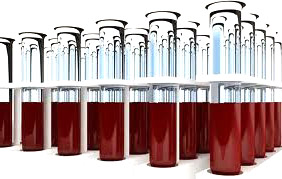
Published: 7 May 2024 Blood works understanding tool
Blood tests are a great tool to give medical providers a look at your overall health.
This test screens your white blood cells, red blood cells, hemoglobin, hematocrit, and platelets. With so many lab options, it can be overwhelming, so we're breaking down exactly what you need to know about blood work so you can take control of your health.
What is routine blood work?
One of the most important blood tests you can have done on a regular basis is a complete blood count test, also known as a CBC test. It's also an important part of protecting against the development of a health concern.
How often should bloodwork be done?
How routine your bloodwork is will likely vary by age and your overall health. They're one of the main ways that diseases and other medical issues are diagnosed, and they can be critical in early detection.
But most people don't understand what blood work they need to get done on a regular basis and how often they should be getting lab tests done. It's one of the best ways for providers to see if you have any potential indicators for infection, anemia, cancer, nutritional deficiencies, and more.
A basic metabolic panel, referred to as a BMP, looks at things like sodium, glucose, and electrolytes - elements that make up your blood. With this test, providers can gain valuable insight into your muscles, heart, organs, and bones.
Tracking your test results allows your provider to keep an eye on potential concerns and see if there are any changes that occur from year to year. It's recommended that you get a blood test done at least once a year during your annual checkup.
If you've got pre-existing conditions like hypertension, heart disease, or diabetes, you may need to increase your blood work every three or six months, depending on the recommendation of your provider.
Many patients can check their blood test results in secure online patient portals.
From checking your cholesterol levels and thyroid function to diagnosing infections, diseases and other conditions, blood tests are often the first step in diagnosing dozens of conditions.
Your doctor typically orders blood tests for you during a physical, checkup or screening for a specific condition, including heart disease, thyroid disease, cancer, diabetes and sexually transmitted infections.
Blood tests are very safe. Check if you need to do anything to prepare for it. The small amounts of blood drawn for the test can help your doctor check for a wide range of issues.
If your doctor recommends a blood test, be sure you understand what the test measures. A phlebotomist uses a needle to takes a sample of your blood, usually from a vein in your arm. Blood tests are among the most common types of diagnostic tests for good reason. But the test is typically not painful, and the process takes just a few minutes.You may feel a slight prick when the needle is inserted into the vein.